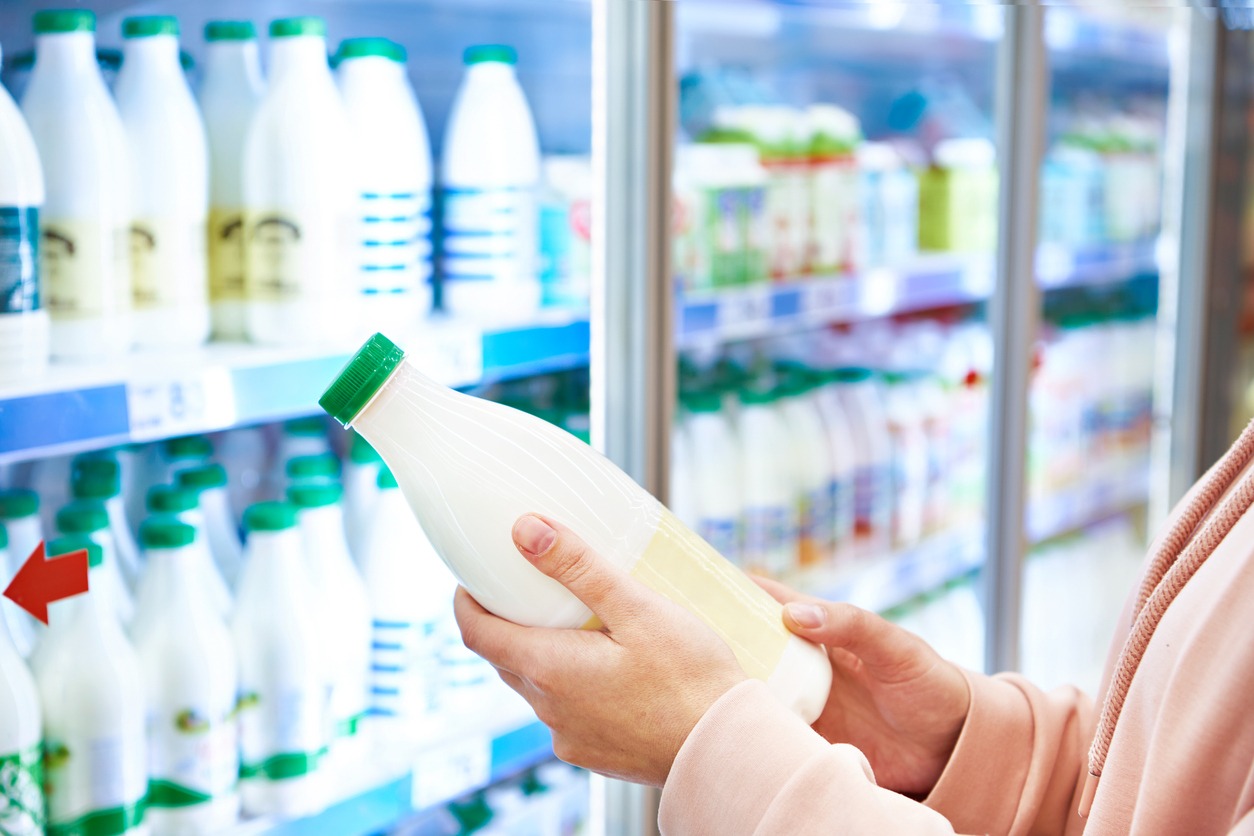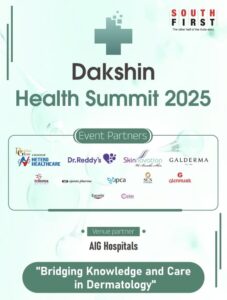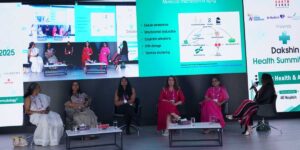Published Nov 10, 2025 | 8:09 PM ⚊ Updated Nov 13, 2025 | 10:37 AM

Milk. (iStock)
Synopsis: At South First’s Dakshin Health Summit, experts urged caution against the growing trend of eliminating dairy, saying the evidence linking milk to inflammation is complex and often misunderstood. Dermatologists, endocrinologists, and nutritionists agreed that moderate consumption of milk and curd can be beneficial, but excessive intake or poor-quality dairy may contribute to inflammation and metabolic issues.
The question of whether dairy products are inherently inflammatory has become one of the most debated topics in dermatology and nutrition.
Experts at the second edition of South First’s Dakshin Health Summit offered a nuanced perspective that challenges the growing trend of completely eliminating dairy from diets.

The second edition of the Dakshin Health Summit 2025 was held at the Asian Institute of Gastroenterology in Hyderabad on Sunday, 9 November.
At the panel discussion on skin health and ageing held at the Asian Institute of Gastroenterology (AIG) in Hyderabad on the morning of Sunday, 9 November, leading health professionals debated whether the current trend of avoiding dairy reflects sound medical practice or overdiagnosis.
Dr Malavika Kohli, Senior Dermatologist and Director of Skin Secrets, Mumbai, who moderated the discussion, posed the central question: “So it looks like people saying they’re allergic to milk, or avoiding milk, dairy, lactose, or casein is becoming overdiagnosed. Would you agree?”
Dr Kalpana Sarangi, Consulting Dermatologist and Head of Department at Nanavati Hospital, Mumbai, acknowledged the complexity of the issue. “Certain skin conditions flare when there’s inflammation in the gut – psoriasis, rosacea, acne, even atopic dermatitis. So yes, we think differently now, but it’s not a rule. It’s not the rule,” she said.
Dr Jyotsna Gampa, Dermatologist and Trichologist, and Director of Chaitanya Trichodermatology Clinics, Hyderabad, highlighted geographical differences. “Compared to Western populations, I don’t think so. Milk allergies are far more common there. In Indian patients, the allergic profile we see is more often linked to nuts and other triggers. I find dairy to be a less significant factor in Indian scenarios,” she said.
 Dr Lakshmi Lavanya, an Endocrinologist and Diabetologist from Hyderabad, offered a comprehensive view of the dairy debate.
Dr Lakshmi Lavanya, an Endocrinologist and Diabetologist from Hyderabad, offered a comprehensive view of the dairy debate.
“So your question is whether milk and curd form part of a pro-inflammatory or what I’d call a pro-damage diet. In moderate quantities, milk and curd are very good for health. They provide carbohydrates, proteins, and several important nutrients,” she said.
“Curd, being fermented, contains lactobacillus, which promotes beneficial bacterial growth in the gut and is very good for improving insulin sensitivity and reducing insulin resistance.”
However, Dr Lavanya emphasised that excessive consumption changes the picture entirely.
“But once you go overboard, that changes. If curd intake becomes two or three times a day, or if milk intake becomes excessive, it can turn pro-inflammatory. In some cultures, people drink milk like water. When my children were in the US, kids would drink milk for thirst,” she said.
“Schools even had to educate them to drink water, not milk or orange juice, when thirsty. Milk became a comfort drink – for acidity, after sports, first thing in the morning. That much milk is not good. It adds unnecessary calories and can become pro-inflammatory.”
Dr Lavanya stressed the importance of both factors: “So, moderate quantities of milk and curd are beneficial. But when the quantity is too high, or the quality is compromised, problems begin.”
The panel raised serious concerns about the quality of commercial dairy products.
“If the animal feed is contaminated or adulterated with steroidogenic and androgenic growth hormones to increase milk yield, that becomes harmful. These anabolic substances in the fodder can contribute to early puberty, precocious puberty, and hyperandrogenism in young girls and boys. So going overboard, both in terms of quality and quantity, becomes the cutoff point,” said Dr Lavanya.
Dr Maya Vedamurthy, Senior Dermatologist and Director of RSV Skin Clinic, Chennai, added, “Grass-fed milk is supposed to be free of the hormones injected into cows for increasing production.”
“Yes, and pasture-raised cattle too,” Dr Lavanya agreed.
Dr Sarangi highlighted another concern: “If the cattle are given antibiotics, they also pass into the milk, and then we consume it, leading to skin allergies.”
Dr Vedamurthy pointed to oxytocin as yet another issue. “Cows are often injected with oxytocin to keep them constantly lactating. That’s not good for the animal or for the people drinking that milk. There are lots of issues like that.”
Dr Gampa raised a common misconception: “There’s this notion that milk is pro-inflammatory and curd is anti-inflammatory. Is that actually true?”
Mrinal Pandit, Head Nutritionist at Oliva Skin, Hair and Body, Hyderabad, responded, “This is something a lot of people ask because there’s so much confusion. Milk responses vary from person to person, so having a blanket rule to avoid milk is not correct. If there’s an active flare, we may avoid it for a short while and then reintroduce it. Curd is generally better tolerated because it’s already fermented and easier to digest.”
She explained the clinical approach: “There are research papers on this, but what we observe clinically is that when inflammation has been persistent for a long time, we try to avoid dairy for a brief period. Even if the person is not gluten-sensitive—not coeliac—we sometimes hold both dairy and gluten to see the response. If recovery is faster or the results are clearly better, we pause them. But we don’t believe in totally excluding major food groups.”
She continued: “We may restrict them during flare-ups, but we always reintroduce them because the body has other nutritional needs. If we stop everything, the required nutrients and complex fibres will be missing.”
Dr Lakshmi Lavanya presented compelling research supporting dairy restriction in specific contexts.
“One more important point, Dr Malavika. With the current trend of diabetes reversal or metabolic syndrome reversal, research has tried to identify the culprits in diet. Other than meats, milk products and lactose have also been implicated. Many successful reversal diets follow a vegan, gluten-free, lactose-free, and meat-free pattern. These, along with avoiding refined carbohydrates and sugars, have shown good long-term results,” she said.
She cited specific research: “There was a Geneva study from Switzerland where individuals remained free of diabetes for more than 25 years by following a strict vegan diet – no milk products, no cheese, no butter, none of the byproducts of milk, along with gluten-free eating. So we can’t ignore how much milk and curd may contribute to an existing inflammatory or age-related inflammatory pathway. I believe the contribution is significant. It does add damage.”
Dr Kohli concluded the discussion by acknowledging the complexity of the issue.
“I think there’s enough evidence to show an association, but it’s not a blanket rule. The response varies hugely across different regions of India itself. Cow’s milk and ghee, for instance, have their own benefits. Cow ghee is even considered good in many traditions. But dairy always comes up in consultations – can I take it, should I avoid it? And as we saw in the earlier case, when the patient stopped all forms of dairy, she clearly improved. So there are patients who benefit, along with probiotics and other supportive measures.”

